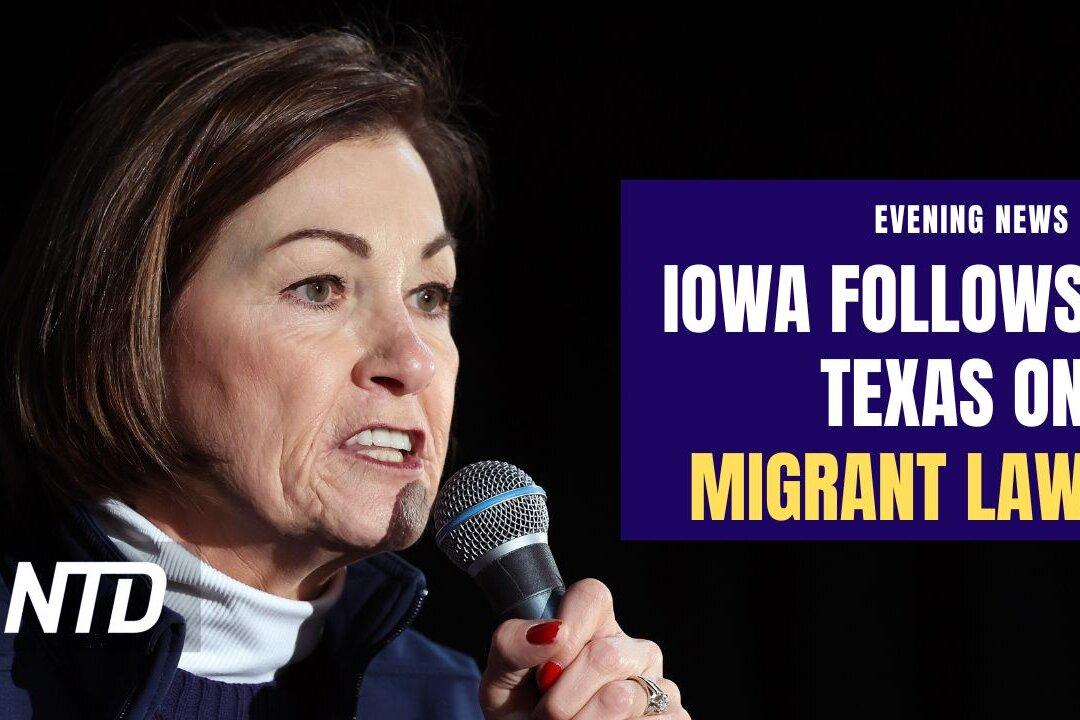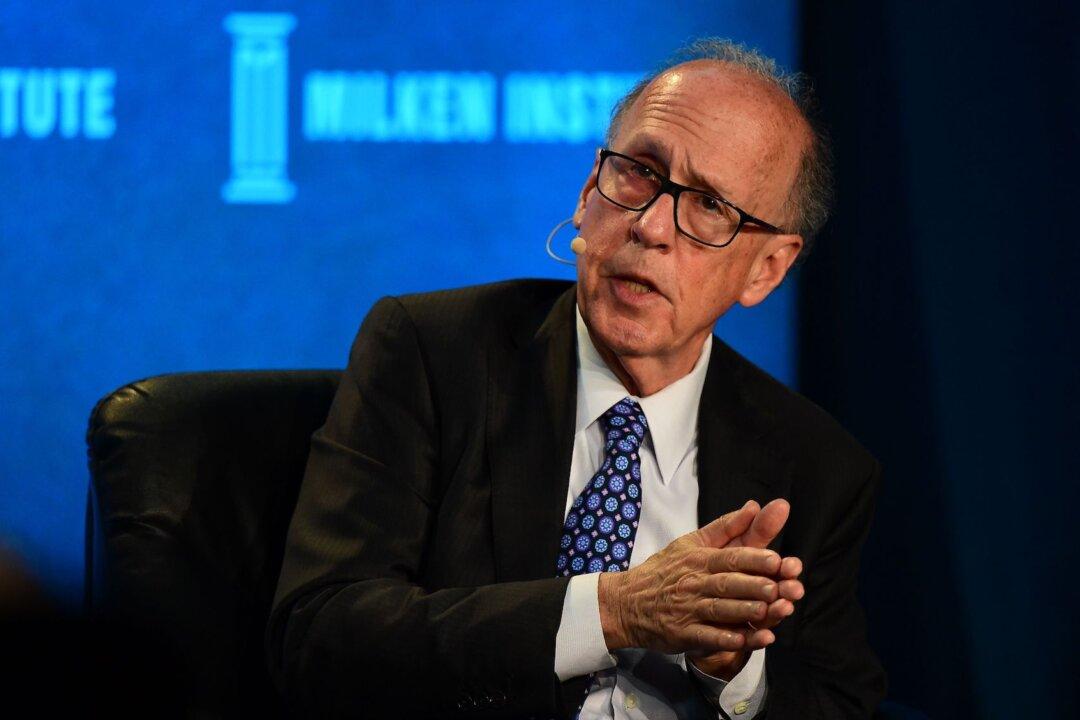NEW YORK—Strolling through the Northwest Bronx Monday afternoon, five Guardian Angels attired in their signature red berets met with smiles and New Year’s greetings from passersby.
The Guardian Angels, who patrol the streets hoping to make them safer, inspired acts of kindness in their surroundings. After greeting the angels, people also opened up to other people around them and conversations broke out. Their desire to care for others seemed to spread to others as people became more courteous and helped each other with little things, such as carrying bags.
Not everyone was happy to see the angels. Some people crossed the street to avoid the patrol. The angels explained that people often obviously avoid them, and they suspect these people are the ones up to no good.
The angels will only act, however, if they see a crime actually being committed. They can make a citizen’s arrest or intervene in a violent crime, but otherwise they simply report what they find to police.
The Guardian Angels have served their role in helping bring record low crime rates to the city. The NYC-based global organization has seen the city transform into a safer place during the 33 years since its establishment.
“I’ve seen a lot of changes,” said John “Shaggy” Wilfred, an angel of 12 years. “Where I grew up, there were drug dealers on every block. People couldn’t come out of their houses because [of] either drugs or prostitution.”
[etssp 490]
Since he became an angel, the drug dealers have become less rampant.
“You’re never going to do away with crime, but if we can put a muzzle on it, it helps.”
Though the red beret and jacket are well known around the city and across the globe, many are not familiar with the difficult history of the organization.
A Turbulent Past
The Guardian Angels, a nonprofit, voluntary, weapon-free patrol, was founded in 1979 by Curtis Sliwa, a night manager at a McDonalds in the Bronx. The area was crime ridden, so Sliwa organized his 13 employees to watch the subways and prevent crime.
At first, many locals thought they were simply another gang that would bring more harm than good. At the time, the Hell’s Angels, a large motorcycle gang, was popular among younger generations and there was a prolific number of B-grade films about gangs. A few days prior to the establishment of The Guardian Angels, cult classic “The Warriors” was released, which made the newly founded group seem like just another gang.
Sliwa acknowledged this and opted for a name that would sound protective, and thus Guardian Angels was chosen.
Even with the friendly name, the city was skeptical about the new organization. Sliwa was arrested 76 times, many times for “just breathing air.”
“The cops at first harassed us because they feared the worst. … They thought we were a gang; they thought we were going to use the good will that we were earning to take advantage of the elderly, women, [and] children. And you can’t exactly blame them. There were a lot of people who had come before who had organized things that had done exactly that.”
People were also unsupportive because they were afraid that the angels’ presence would mean a decrease in property value.
Another difficulty was getting members to join.
“It was difficult for them to step forward and profess to want to do good things because this was in the face of all the negative actions of gang bangers, drug dealers, and thugs who made it very uncool to want to be helpful.”
At one point the Guardian Angels almost dissolved under the pressure from authorities. Sliwa was shot in 1992. Six other angels were shot and killed. Another three dozen were injured.
It was 13 years before the community began to accept the organization. In the 1980s, when the crack cocaine epidemic hit the city, many businesses on Times Square asked the Guardian Angels to come patrol the streets to prevent the dealers from conducting business near their store fronts.
A critical part of the transition was former Mayor Rudy Giuliani, who supported the Guardian Angels and aligned the organization with Block Watch, Crime Watch, and other civilian groups in 1993.
Then, inquiries came from all over the country asking Sliwa to develop Guardian Angels in their areas to deal with crime and drug problems. The organization began to expand across the West and the South United States.
There are currently 141 chapters in 17 countries, with more than 5,000 participants.
Next...Daily Routine
Daily Routine
When on patrol, the angels stand in a line and overlook the crowds, keeping alert for any signs of trouble. Although a best patrol is one where nothing happens, according to Wilfred, an angels patrol is often eventful. Incidents can range anywhere from a verbal threat, to physical assault.
At the time of his interview, “Zeek” John Gavares and his team who patrol in the Bronx had just returned from a McDonalds where they were able to prevent trouble from arising. The team surrounded a man who threatened to kill a woman in the fast-food restaurant and the man promptly took off running when he was approached by the angels.
Incidents like these are frequently experienced for an angel on the job. Gavares once witnessed a man assaulting a woman on the streets. After confirming the situation with the victim, he detained the man and notified the police. Another time, he saw a woman stabbing another woman in the heart with an ice pick. Gavares chased after the assaulter and was able to detain her with the help of an undercover police officer.
Things don’t always go so smoothly, however, as Gavares points out. Due to the nature of their work, the angels are often put in danger. One and half years ago Gavares was stabbed in the face while confronting an “insane individual” on the Long Island Rail Road, which resulted in 65 stitches along his lip.
“The conductor asked us to get [the individual] off the train, but he didn’t comply and when we turned our heads, he just came on and struck me with a blade in my face,” said Gavares. “Later on I found out that he was in jail for 16 years for manslaughter.”
The angels are always patrolling, several days a week throughout the five boroughs. The schedule is determined on a volunteer basis—whoever has time can contribute. Many members who do not have a job offer an entire day of patrolling service.
“We expect the unexpected. When we’re on the streets, anything can happen,” said Gavares.
To prepare for an unexpected encounter, the angels train once or twice a week for basic self-defense skills, martial arts, crime prevention, communication, and conflict resolution skills. The Guardian Angels’ job has also become safer with the development in technology that allows for swift communication.
Despite the dangers, the angels are enthusiastic about patrolling.
“It’s in my DNA to have to go out there and help people. If I see something happening, I’m going to intervene,” said Gavares on his decision to join the Guardian Angels.
“It gives me a sense of giving back to my community,” said Wilfred. “Although the police do a good job at what they do, they can’t be everywhere. As a private citizen, I try to make myself available as I can, just to give the police a helping hand.” He also pointed out that the angels are able to make the community safer for the children.
Since the Angels’ have gained positive recognition in recent years, people on the streets often nod and greet the patrolling volunteers happily. Many enjoy the presence of the angels and people almost involuntarily become more courteous when they see a red beret.
“And that is what makes it all worth it,” said Wilfred of the reactions from citizens.
Click here to read Part II of the series On the Beat With NYC’s Guardian Angels









Friends Read Free